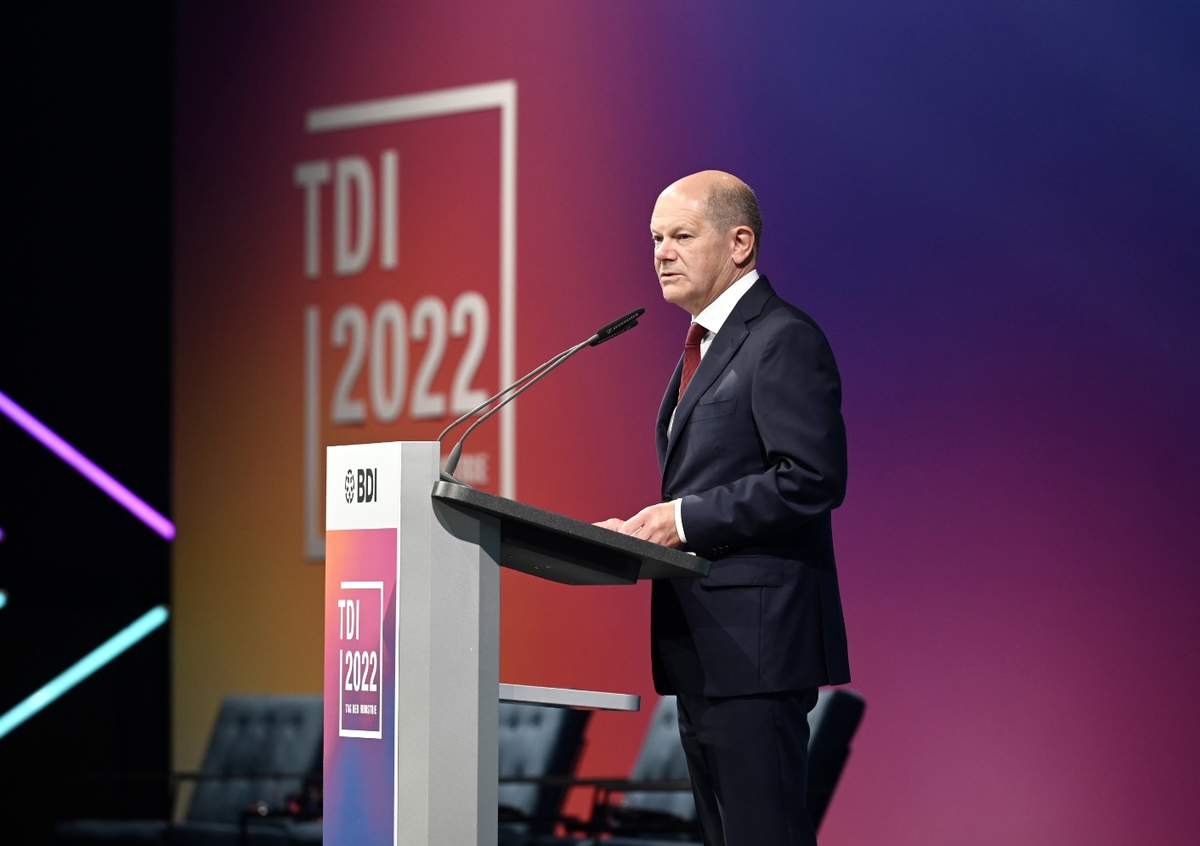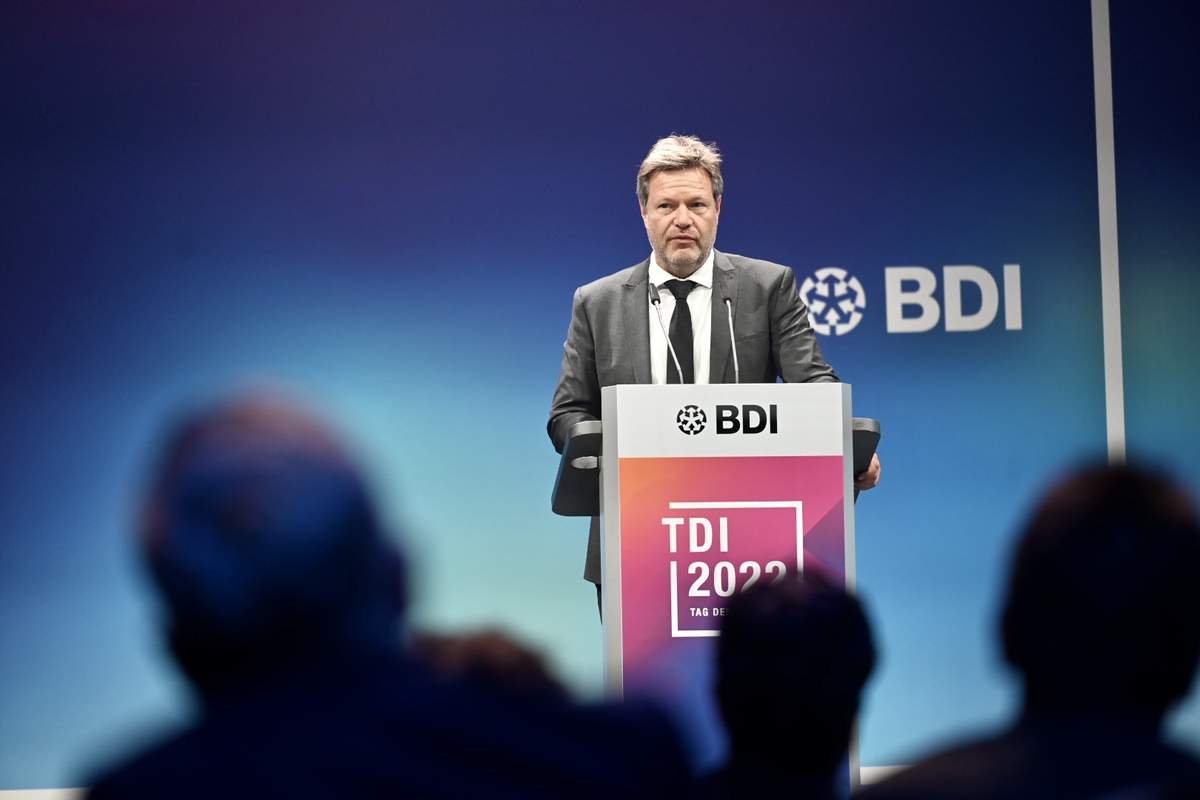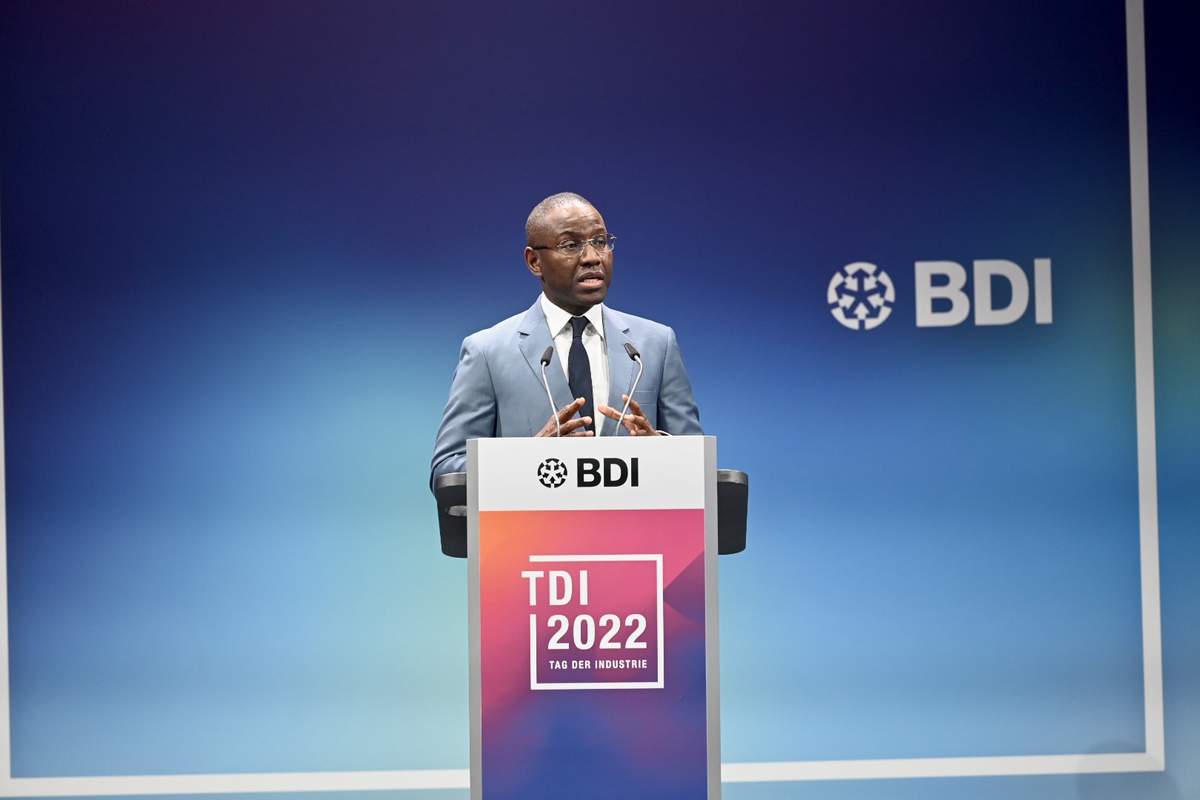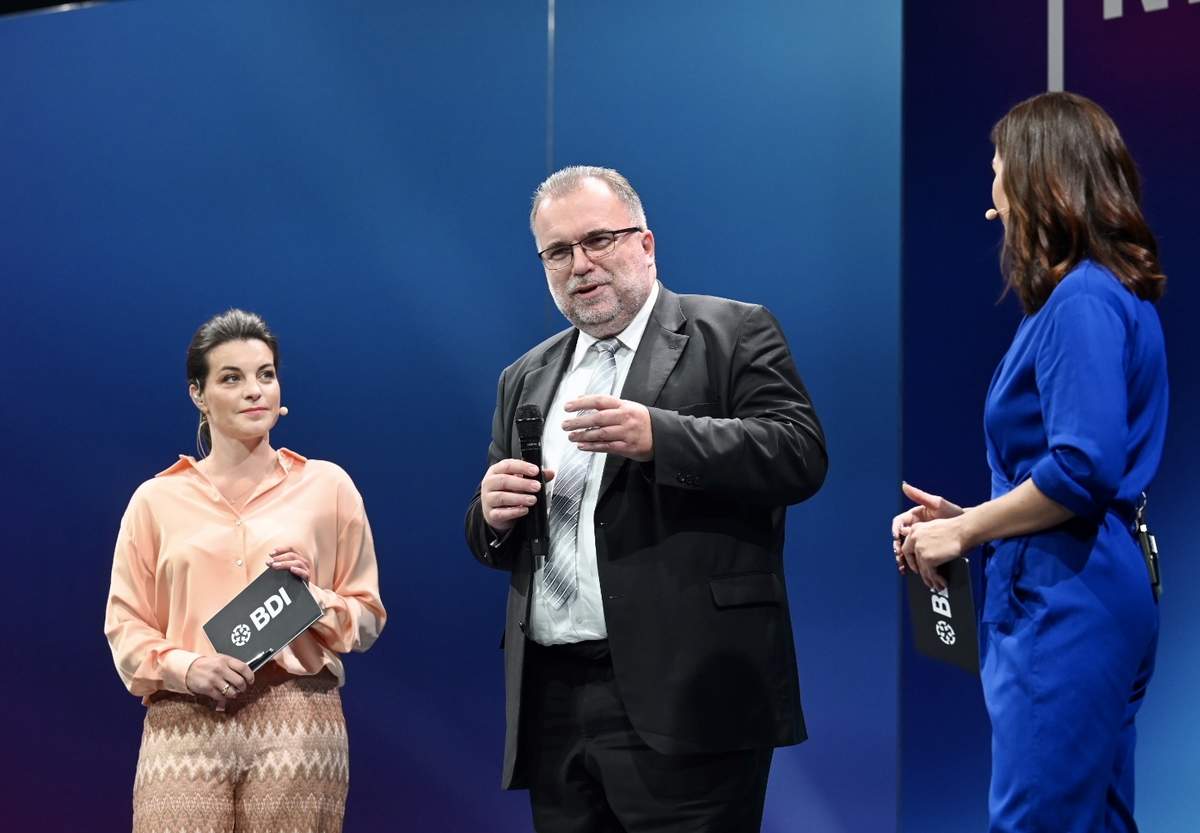How the war in Ukraine is changing our markets? How can we navigate towards more resilient supply chains? How do we position our industrial location of the future? And which role plays Africa in it? These questions were the focus of this year's Day of German Industry (TDI), which is organized annually by the Federation of German Industries (BDI). We are convinced that especially in times of crisis, the open exchange of opinions, ideas and analyses is crucial for developing solutions together. Therefore, the BDI chose a hybrid format to maintain the dialogue between business and politics despite all current challenges.
Day of German Industry: We dare to shape the change
At the end of June 2022, the BDI's most important industry conference took place in Berlin’s Verti Music Hall. 124 days after the Russian war of aggression changed the global business environment forever and after two years of the ongoing Covid-19 Pandemic, the Day of German Industry (Tag der Industrie - TDI) looked at the current and future challenges facing the industrial landscape. This year’s motto: #ScalingTheNew
Impressions #TDI22
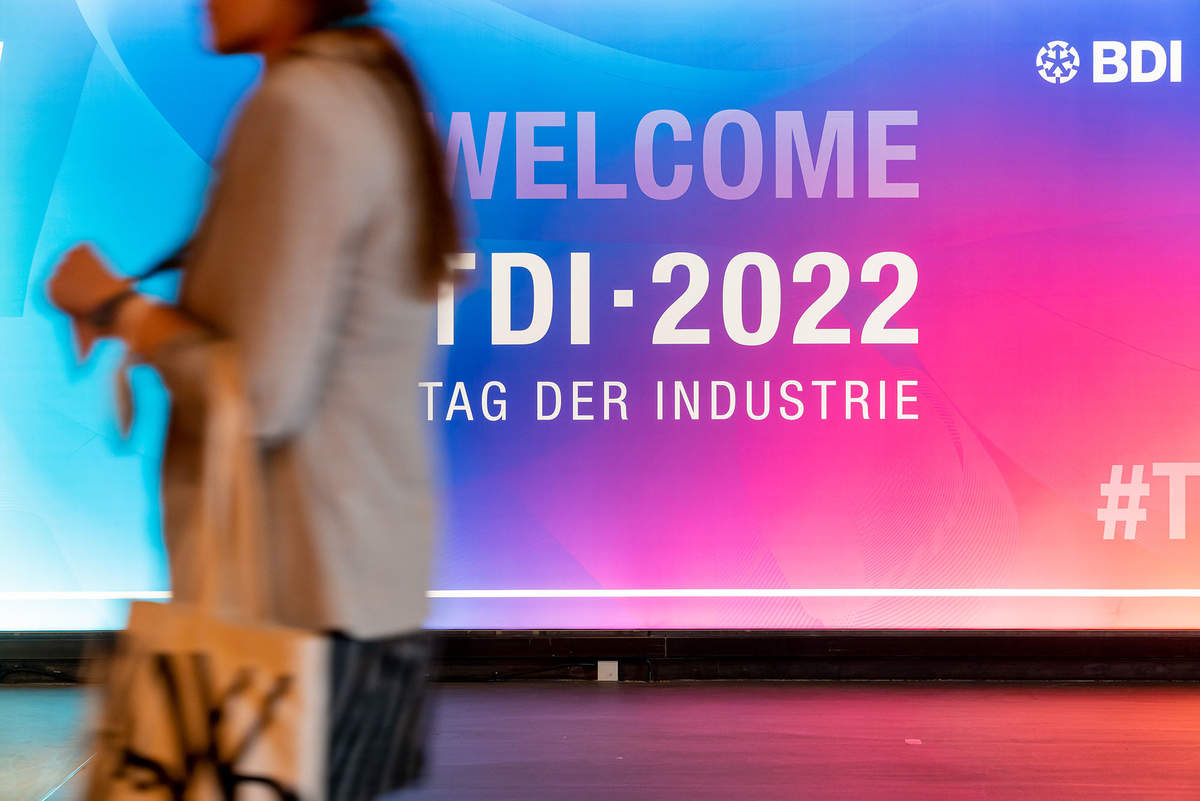
© Christian Kruppa
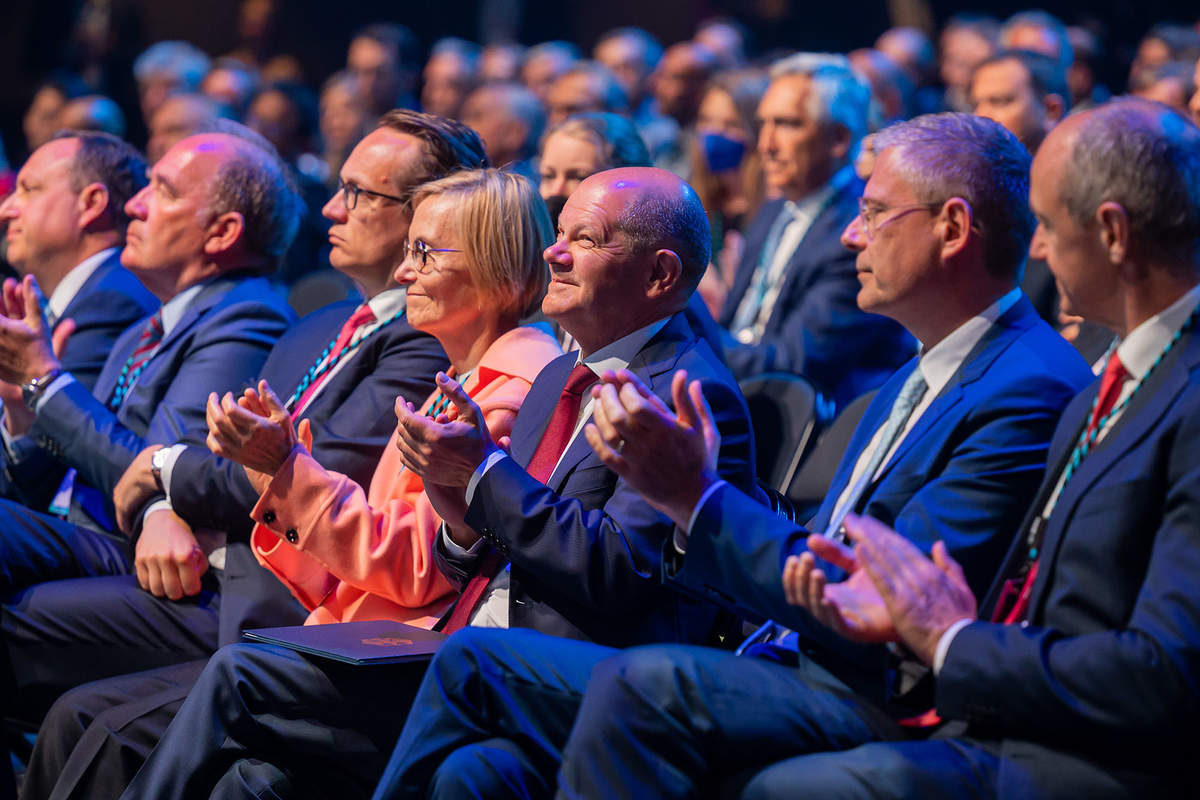
© Christian Kruppa
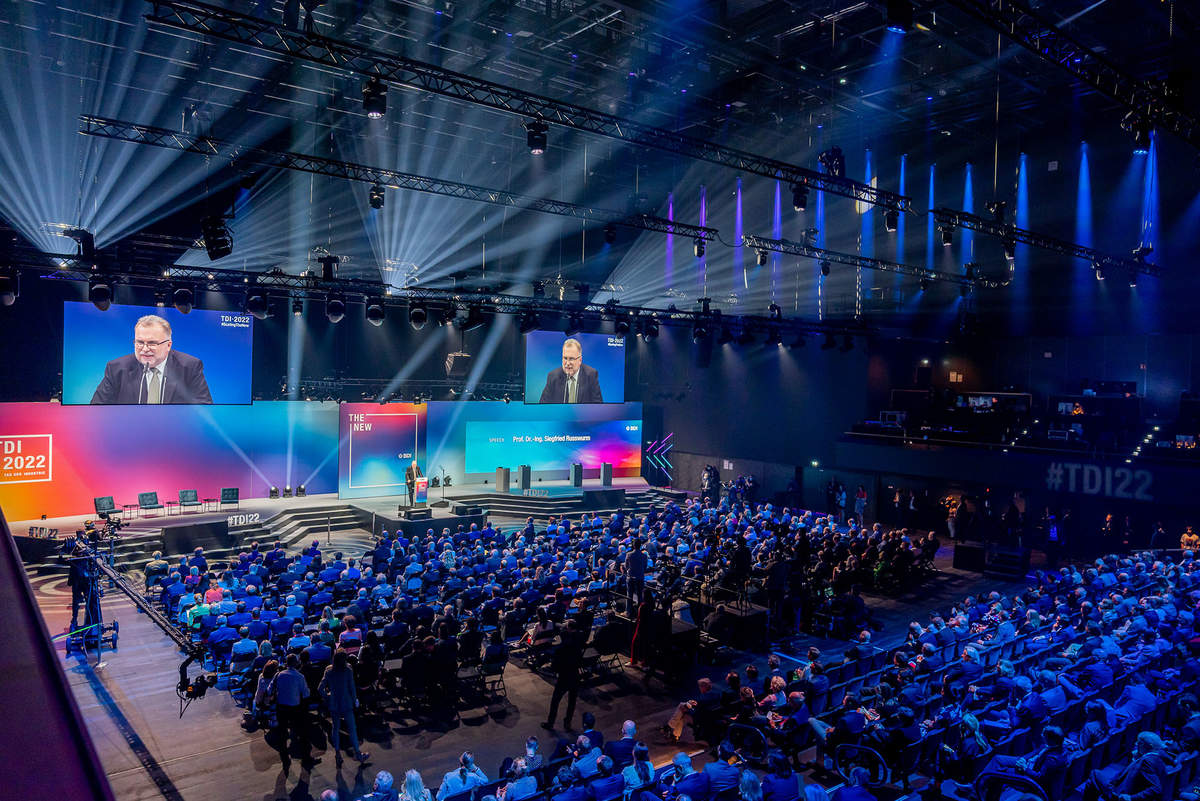
BDI President Siegfried Russwurm © Christian Kruppa
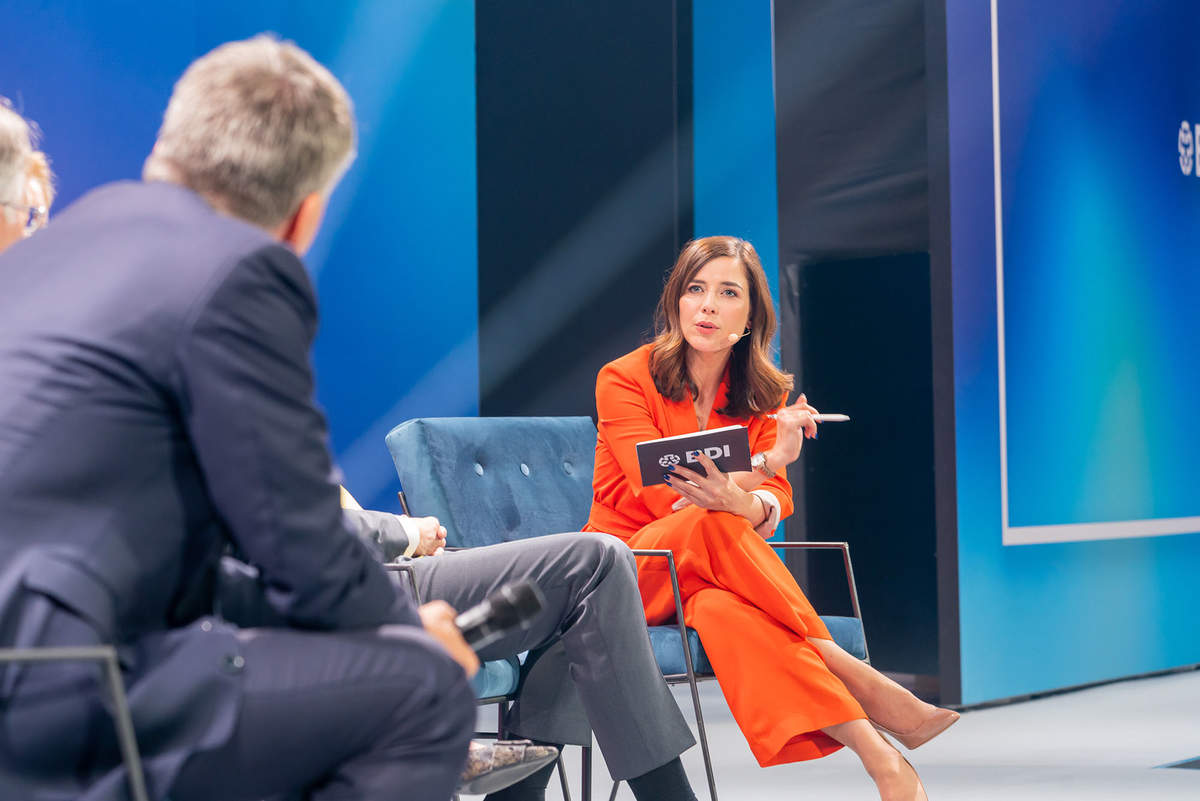
© Christian Kruppa
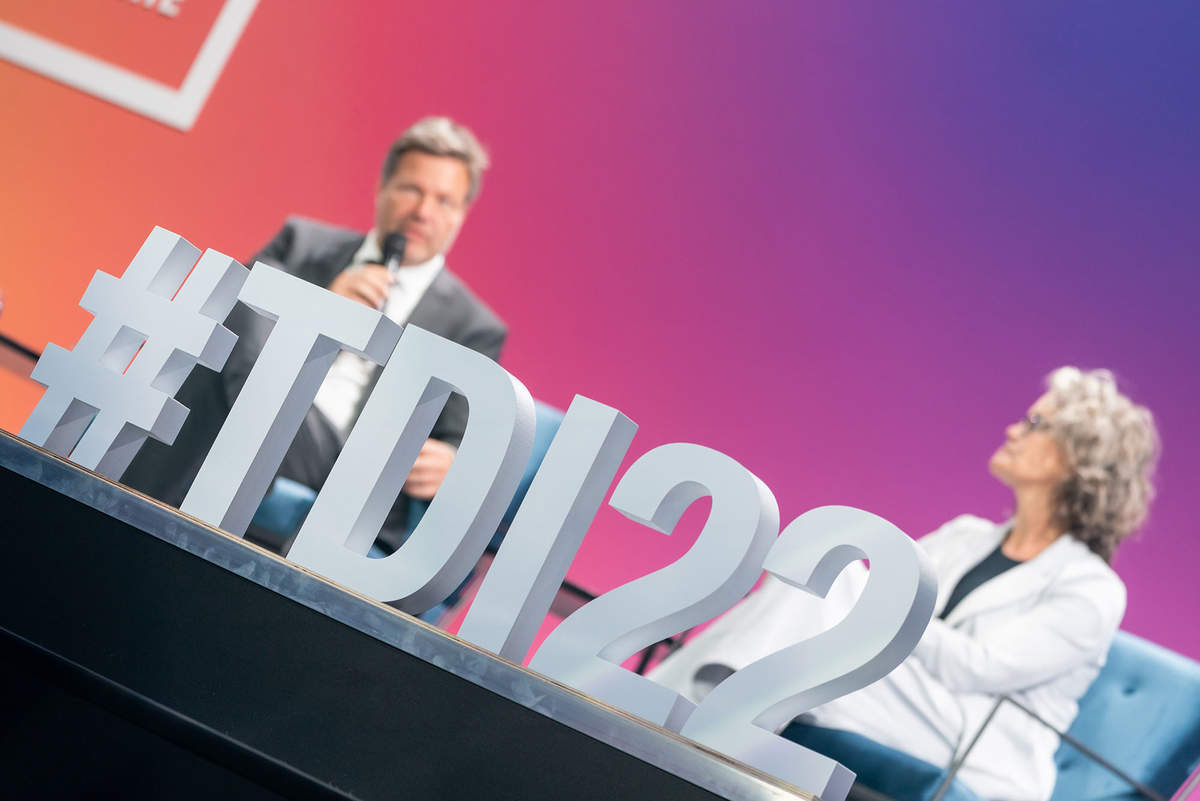
© Christian Kruppa
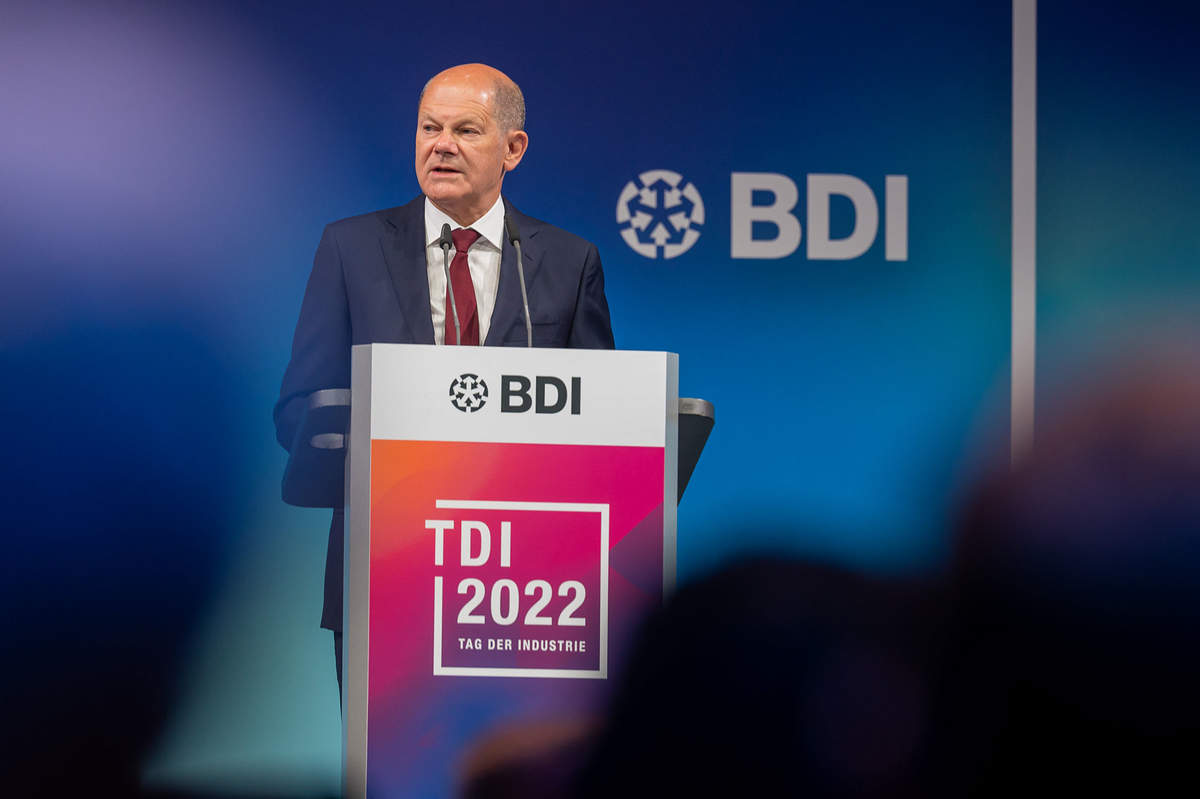
Federal Chancellor Olaf Scholz © Christian Kruppa
In 24 panels, speeches and web talks the TDI brought together a total of 58 speakers, on site in the Verti Music Hall and thousands of online viewers in front of their screens. Among the TDI 2022 highlights were the speeches of German Chancellor Olaf Scholz, Federal Minister of Economics and Environment Robert Habeck and Federal Minister of Finance Christian Lindner as well as the international perspectives shared by Amadou Hott, Minister of Economy, Planning and International Cooperation of Senegal and Micky Adriaansens, Minister of Economic Affairs and Climate Policy of the Netherlands.
Scholz: Now is the time everyone around the world has to talk
The Russia-Ukraine war was more prevalent than any other topic in the discussions this year. Chancellor Scholz once again underlined German-European solidarity towards Ukraine:“Now is the time when everyone around the world has to talk. Democracies do not accept Russia's violent attack on Ukraine. That is why we work with sanctions that also work. Sanctions hurt our businesses. Freedom has its price. Democracy has its price. A great transformation lies ahead of us.” Regarding the upcoming challenges for German industry, Scholz made it clear that he is vehemently committed to protecting German industry: “I want Germany to have more jobs, not fewer. We will resolutely expand renewable energies in Germany. 2022 is the year of decision and we have rolled up our sleeves.”
In another panel, Economics Minister Robert Habeck warned of a situation that could hit us worse than the Corona pandemic: “If the gas tap is turned off, then we are talking about a severe economic crisis.” According to him, the necessary transformation process is to overcome high risk. There is a huge time pressure. What is possible for LNG terminals must be possible for every other infrastructural investment.
The role of companies in times of crisis
Support for this political agenda can also be heard from the ranks of industry. Klaus Rosenfeld, Chairman of the Board of Schaeffler AG, emphasises the role of companies in times of crisis: “Companies are the engine of national economies. When they stutter, it always hurts the weakest. That is why it is important for us entrepreneurs to fulfil our tasks.”
Martin Brudermüller, CEO of BASF, expressed a similar view: "We have to put competitiveness at the centre of everything we do. And much more broadly - not just as a company or industry, but as a society. If we want to achieve that, we have to prioritise."
Perspectives from Africa
Globalisation means above all global connectedness and that also creates security, but also uncertainty, especially in view of resilient supply chains. This is also underlined by Amadou Hott, Minister of the Economy, Planning and International Cooperation, Senegal: Africa should be a part of the G20. I really want to advocate that Africa sits on the table where the decisions for the future are made because most of the decision about climate change, pandemics and economy transformation will have an enormous influence on Africa.
But Entrepreneurs look forward
In his main speech on the second day, Siegfried Russwurm, President of the BDI, demanded: “High commodity prices are fuelling inflation - this is felt by citizens. Above all, those who can afford little are suffering. But many companies are also feeling it. That is why the relief packages were right on the whole - but they are not a permanent solution. The President made it clear that the industry expects the Federal Government to make significantly greater efforts to sustainably strengthen the German Industry. To achieve this, the German government must, among other things, create more incentives for business investment. “Corona, war, inflation, gloomy economic prospects: all this is poison for investment decisions. The order books of the capital goods industry are still well filled, partly because production backlogs from disrupted supply chains are only slowly dissolving.” But if confidence in further growth tips over - whether because of a “hard landing” of the US economy or because of rising interest rates and capital costs in Europe - the picture can change quickly”, said Russwurm.
The next Day of German Industry takes place on June 19 and 20, 2023 in Berlin.




